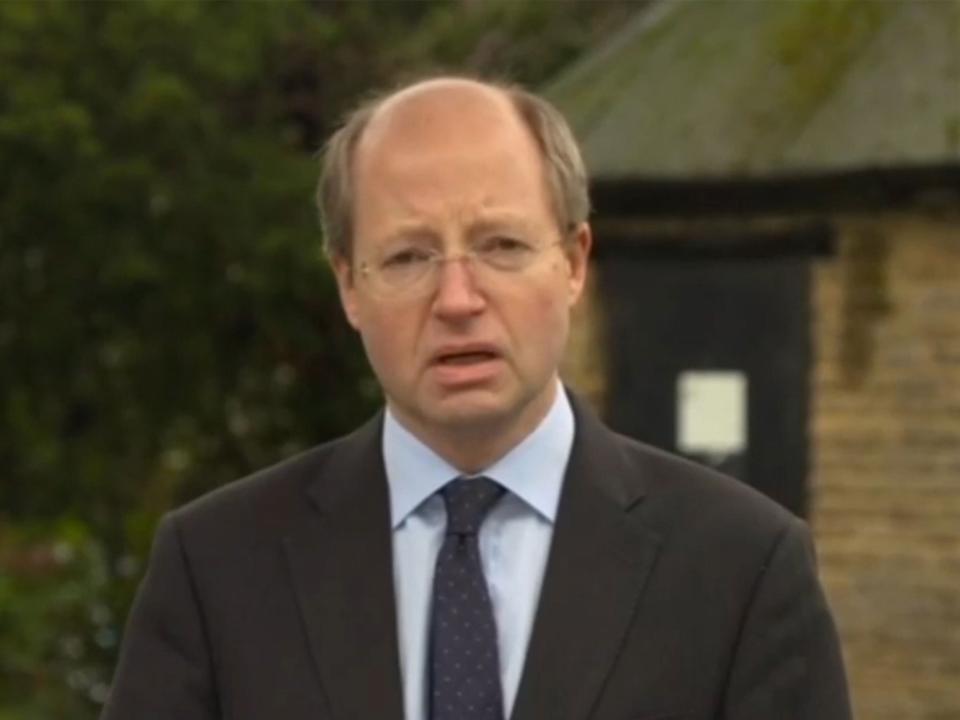Boris Johnson is at war with civil servants – it won’t end well for him

Philip Rutnam intends to take Priti Patel down with him. The home secretary’s former top civil servant says he was offered a financial settlement, but he wants his day in court.
I don’t know if he will succeed. But the struggle casts doubt on the wisdom of Boris Johnson’s strategy, devised by Dominic Cummings, his chief adviser, of going to war with what they see as the Remainer establishment.
Cummings’ view would appear to be that the prime minister cannot lose if he is seen to be trying to make Brexit work, sweeping aside naysayers in the civil service, the Treasury and the media. That is why he has gone to war with the BBC, Channel 4, Sajid Javid and his political advisers, and Sir Philip at the Home Office.
Just as there were signs that Johnson was pulling back his tanks, putting a junior health minister, Edward Argar, on the BBC’s Today programme on Saturday morning, the other side has launched a counter-attack.
Sir Philip’s strike is unprecedented. Never before has a permanent secretary sued a government for constructive dismissal, let alone gone on TV to announce it. There is often tension between the civil service and politicians when a new government takes over, but this is the most extreme case.
What is remarkable is that Johnson has been prime minister since July, and the Conservatives have been in government for 10 years. Yet for the prime minister, the election on 12 December was the day he divided the light from the darkness and the world began.
Equally remarkable is that confrontation is not Johnson’s usual way. His way is to slide deniably sideways. He pretended Javid was one of his closest personal friends even as he forced him out of No 11. This week he pretended that the Appeal Court judgment meant the third runway at Heathrow couldn’t go ahead when it would be easy to get the project off the ground, as the court itself said, if the government were to simply take the Paris Agreement into account.
If Johnson decides that he has to cut Patel loose, no doubt he will protest that he knew nothing about what Sir Philip called her “vicious and orchestrated briefing campaign” against him.
But it is all part of a plan, mainly directed by Cummings, to dramatise the prime minister’s battle, as the head of a new Leave government, against the Remain establishment. That means portraying the previous Tory administration as a Remainer regime, and replacing a chancellor who voted Remain with one who voted Leave. It means all members of the XS (exit strategy) committee are now Leavers, with Suella Braverman replacing Geoffrey Cox as attorney general.
And it means trying to force out senior civil servants who show insufficient revolutionary enthusiasm. When Labour comes into government it tends to assume that senior mandarins are conservative with a small “c” if not actually a big “C”. Harold Wilson first formalised the appointment of political advisers for this reason in the 1960s. When Tony Blair arrived in 1997, there were tensions over the role of Jonathan Powell, a political appointee, as chief of staff at the heart of No 10.
Any new government faces the constraint that ministers cannot choose their senior civil servants. This is for the good constitutional reason that a permanent civil service guarantees impartiality, and has the authority to resist ministers trying to do unlawful or undemocratic things. Hence the passage in Sir Philip’s statement today: “I hope that my stand may help in maintaining the quality of government in our country.”
In practice there is usually flexibility and negotiation on both sides, and effective ministers can make the constitution work. Patel seems to have gone down the Cummings route of confrontation instead. Only yesterday an anonymous home office “insider” told The Sun it was “a big clash of cultures, a risk manager vs a radical reformer”.
Patel was frustrated that Sir Philip seemed to think the Home Office was being asked to do too much: a new immigration system, a new border inspection regime, and a new settlement scheme for the 3.2 million EU citizens in the UK, all by the end of the year.
In the short run, the clash will work in Johnson’s favour. Even if Patel herself has to be sacrificed, public opinion is not much on the side of civil servants with knighthoods complaining that things cannot be done.
But in the longer run, the Cummings approach only stores up trouble for the future. If the Home Office cannot handle the Brexit workload, sacking the person who said so won’t magically increase its capacity – indeed, by undermining civil service morale it might reduce it.
Johnson will have noted that two of the candidates against him in the Tory leadership election are already prowling outside the tent. Jeremy Hunt was on the Today programme yesterday sounding authoritative and reassuring about coronavirus in the way that a health secretary ought to be. Sajid Javid was in The Times this morning setting out a tax-cutting, fiscally conservative approach that may appeal to Tory MPs if Johnson’s big spending plans become unpopular.
Johnson may win this battle against civil servants whom he and Cummings see as small “c” conservatives, but there could be a heavy price to be paid around the time of the next election.
Read more
Sir Philip Rutnam’s explosive resignation statement in full
Home Office permanent secretary quits, announcing he will sue governme
Cabinet secretary issues rebuke for ‘briefings and leaks’ in Patel row
It isn’t sexism that’s holding Priti Patel back – it’s her department
